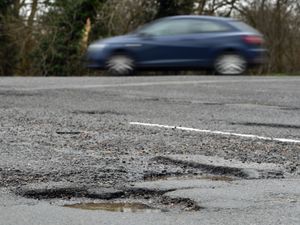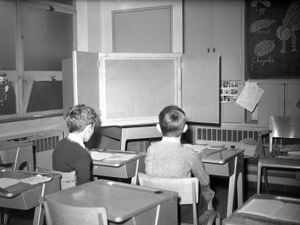Folly of search for 'good school'
On April 14 you carried a brief article on how three out of four parents make huge sacrifices to gain a place at a "good" school for their child. This assertion is made following a survey of 1,000 home-owners (not council tenants?) by thinkproperty.com.
On April 14 you carried a brief article on how three out of four parents make huge sacrifices to gain a place at a "good" school for their child. This assertion is made following a survey of 1,000 home-owners (not council tenants?) by thinkproperty.com.
There was, of course, the recent case of parents being spied upon by a local authority to ascertain if they were cheating. I ask you! Little Hitlers are alive and well, it seems.
I am a retired headteacher – 40 years teaching kids from six to 16. I hope my school was good (Ofsted thought so), but is it only I who can identify the fatuous nature of relatively affluent parents seeking the advantage of a good school for their child?
Certain schools are good; not because they are inherently better than any other school, but because they accept only pupils from socially and financially advantaged homes. Such schools produce the best academic test results not because the staff are better than at other schools, but because the pupils are. There is no such thing as a good school – only good pupils, who thereby guarantee good test results, which thereby guarantee the school's reputation as a good school
The highest attaining secondary schools in the country are the Girls' Selective Grammar School, and why is that? They only take the best attaining pupils in the first place! Schools can be good in many ways, but the overwhelming factor which determines its academic reputation (the one that really matters), is the children who attend.
The Hadow Report, of 1931 expressed it best 77 years ago when it referred to the good fortune of children who enter school "with the foundations of education . . . well laid" and who, as they grow older, acquire "almost as much general knowledge in the home as . . . in the school, and . . . almost as much information about the world and its ways during leisure hours . . . as from the formal lessons in the classroom".
The report contrasted the plight of the child from the poor home: "his vocabulary is limited, his general knowledge is narrow; he has little opportunity for reading and his power of expressing himself . . . is inadequate".
Terry Keasey, Cotwall End Road, Sedgley.





